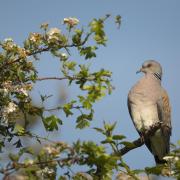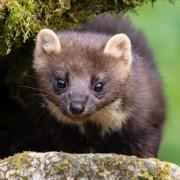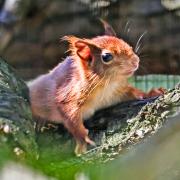Further insect declines in 2022 – a long-term trend or the result of record summer temperatures?
As world leaders met to discuss global declines in biodiversity at the COP15 UN Convention on Biological Diversity back in December of last year, the 2022 Bugs Matter Survey results were announced. The project – led by conservation charities Kent Wildlife Trust and Buglife - revealed further shocking declines in the numbers of flying insects in the UK, supporting the call that urgent action is needed to restore these vital populations.
The Bugs Matter Citizen Science Survey uses an innovative method for the large-scale surveying of flying insect abundance across the UK. The survey runs every summer and involves citizen scientists recording the number of insect splats on their vehicle number plates following a journey.
The latest 2022 Bugs Matter report has found that the number of insects sampled by citizen scientists across the UK reduced by a worrying 64% between 2004 and 2022. This is a 5% greater decline than that observed between 2004 and 2021, it is not clear what proportion of this decline is due to the long-term trend or the result of record summer temperatures, but climate change links these two factors.
Insects make up the greatest proportion of life on Earth. They underpin food chains, pollinate most of the world’s crops, and provide natural pest control services. Without insects, life on earth would collapse and the survivability of humanity on our planet would be threatened.
There are many causes of insect declines – these include the loss and damage to habitats, climate change, pollution of rivers and streams, use of pesticides, and development of wild spaces. There is growing evidence that these factors have caused significant declines in insect abundance in the UK and worldwide – with knock-on consequences for other wildlife and for people.
Dr Lawrence Ball at Kent Wildlife Trust said: “Thanks to citizen scientists across the country, we are building a better picture of the health of our insect populations and already we are seeing some concerning patterns in the data. However, we need more citizen scientists to take part in the Bugs Matter survey next year and into the future, to understand whether we are seeing actual long-term trends or the impact of the extreme temperatures we faced in 2022. Thank you to everyone who took part in this year’s survey. We hope even more citizen scientists will contribute to this valuable dataset in the 2023 survey period and beyond.”
The 2023 Bugs Matter survey season will begin on 1 June 2023. Sign up to get involved here: kentwildlifetrust.org.uk/get-involved/our-projects/bugs-matter



























